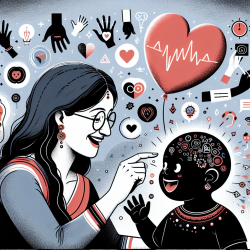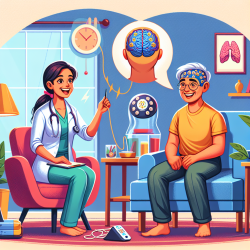Introduction
In the realm of medical education, the ethical responsibilities of practitioners are paramount. The research article "Medical Students’ Attitudes toward Torture, Revisited" provides valuable insights into the attitudes of future physicians towards torture and highlights the importance of human rights education in shaping these attitudes. This blog post explores how practitioners can enhance their skills by implementing the findings of this research or by engaging in further research on this critical topic.
Understanding the Research
The study surveyed medical students at Weill Cornell Medical College to assess their attitudes towards torture and the role of physicians in such practices. The findings revealed a strong opposition to torture among respondents, with many expressing skepticism about its effectiveness. Notably, students involved in human rights programs exhibited significantly stronger opposition to torture, suggesting that human rights education plays a crucial role in shaping ethical attitudes.
Implementing Research Outcomes
Practitioners can enhance their skills by integrating the following strategies based on the research findings:
- Incorporate Human Rights Education: Medical schools and training programs should include mandatory human rights coursework. This education can provide practitioners with a solid grounding in ethical standards and the implications of torture and other human rights abuses.
- Participate in Human Rights Programs: Engaging in human rights activities, such as those offered by the Weill Cornell Center for Human Rights, can deepen practitioners' understanding of the ethical dimensions of their profession and foster empathy and resilience.
- Promote Professional Accountability: Practitioners should advocate for disciplinary or legal actions against healthcare professionals who participate in or condone torture. This accountability reinforces the ethical standards of the profession.
Encouraging Further Research
While the study provides valuable insights, it also highlights the need for further research in this area. Practitioners are encouraged to explore the following avenues:
- Expand Survey Scope: Conduct similar surveys across multiple institutions to gain a broader understanding of medical students' attitudes toward torture and the factors influencing these attitudes.
- Investigate Long-term Impact: Research the long-term impact of human rights education on practitioners' ethical decision-making and patient care practices.
- Explore Global Perspectives: Compare attitudes toward torture among medical students in different countries to understand cultural and educational influences on ethical standards.
Conclusion
Human rights education is essential in shaping the ethical attitudes of future medical practitioners. By implementing the outcomes of the research on medical students' attitudes toward torture, practitioners can enhance their skills and contribute to a more ethical healthcare environment. Engaging in further research will also provide deeper insights into the role of education in fostering ethical decision-making.
To read the original research paper, please follow this link: Medical Students’ Attitudes toward Torture, Revisited.










